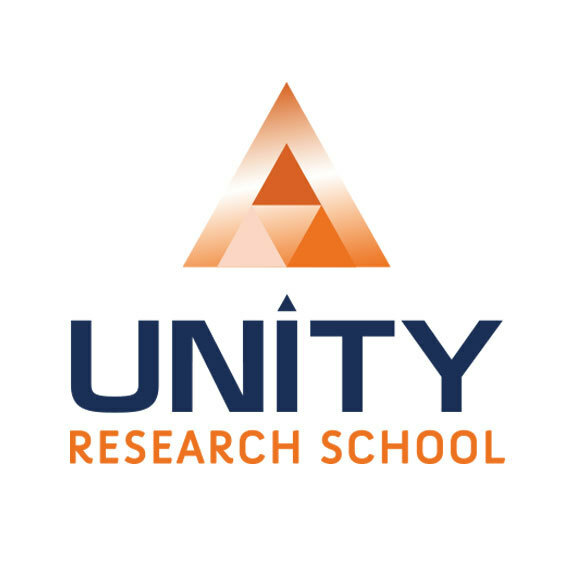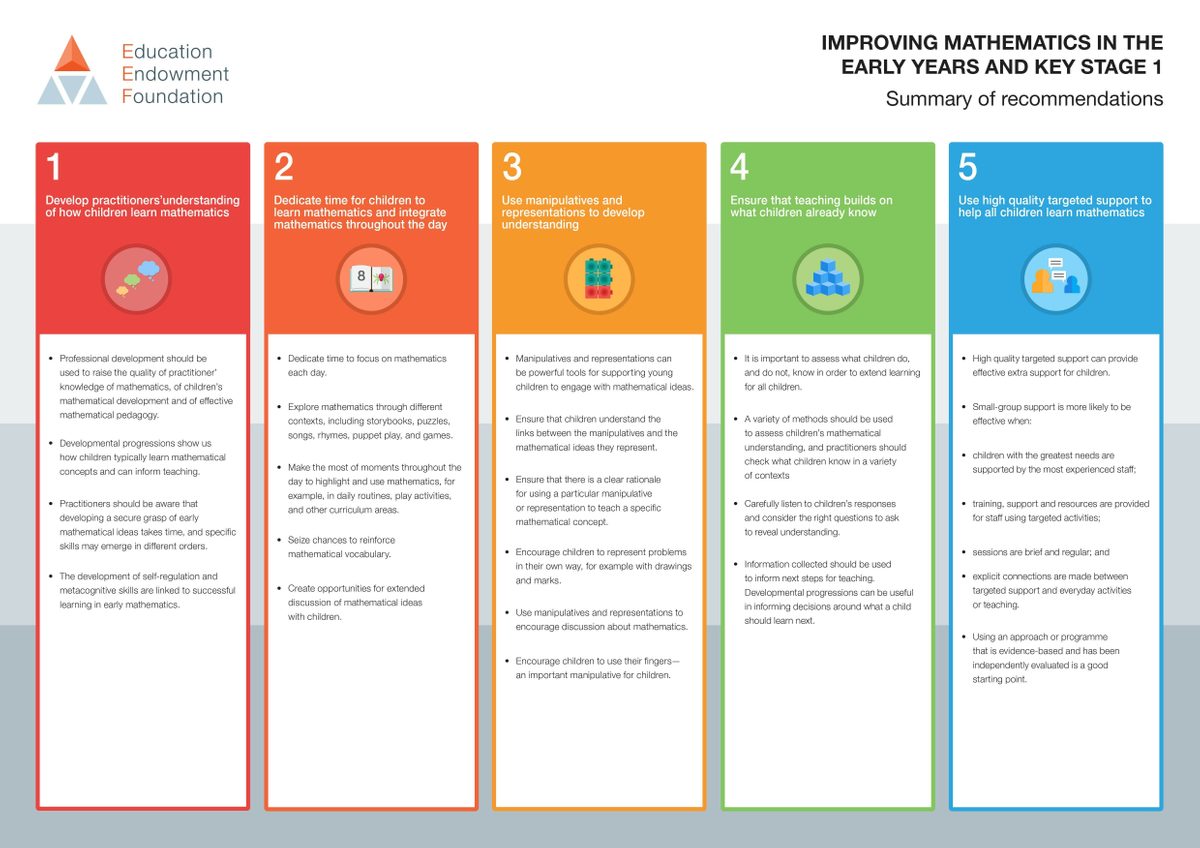

Research School Network: My Take On the EEF’s ‘Improving Mathematics in Early Years and KS1’ – by Carly Wood Reflections and summary of the report by one of its proof readers
—
Blog
My Take On the EEF’s ‘Improving Mathematics in Early Years and KS1’ – by Carly Wood
Reflections and summary of the report by one of its proof readers
Share on:

by Unity Research School
on the
The Education Endowment Foundation’s ‘Improving Mathematics in Early Years and Key Stage 1’ guidance report offers key principles and 5 recommendations for effective practice for 3 – 7‑year olds in mathematics education based upon educational research.

Mathematics plays a key role in a child’s development. Very young children are naturally curious, noticing differences in quantity and the shape of objects, and use early mathematical concepts when they play. Mathematical understanding helps children make sense of the world around them, interpret situations, and solve problems in everyday life, whether that’s understanding time, sharing amounts with their peers, or counting in play. Developing a sound understanding of mathematics when we are young is essential.Children’s early mathematical understanding is strongly associated with their later school achievement. It has, therefore, a major impact on young people’s educational progress and life outcomes. Yet not all children learn the skills they need to succeed. In 2018, just 66% of disadvantaged children achieved at least the expected level of development for number at the end of the Early Years Foundation Stage compared to 82% of their peers. Once children fall behind, it is hard for them to catch up and they are likely to fall further behind throughout school.
In my opinion, one of the key highlights in the report is using manipulatives and representations to develop understanding. Manipulatives and representations can be powerful tools for supporting children’s engagement with mathematical ideas. Ensuring children are exposed to concrete manipulatives is fundamental in gaining a broad mastery of mathematics. It allows children ‘to see’ maths as well as make links and represent Maths in different ways. This can be encouraged and supported in classrooms by the use of manipulatives such as Numicon, bead strings and Dienes. Numicon provides clear representations for a range of mathematical skills, including odd and even number, number bonds, commutativity and the relationship between addition and subtraction as well as multiplication and division.

This recommendation is also highlighted in the Education Endowment Foundation’s ‘Improving Mathematics in Key Stage 2 and 3’ emphasising how the use of manipulatives and representation is important across all year groups. Again, Numicon is a manipulative which can be used to support the understanding of Key Stage 2 mathematical concepts.

“Create opportunities for extended discussion of mathematical ideas with individuals or small groups of children”
Giving children dedicated time for learning Maths and integrating Maths throughout the day is a recommendation of high importance. It helps children understand how maths is part of their everyday lives and can create meaningful mathematical experiences in different contexts. It also allows for mathematical vocabulary to be modelled and reinforced in different contexts, again allowing children to gain a deeper understanding. Exploring mathematics through story books, puzzles, songs and games as well as making the most of moments throughout the day supports in identifying how maths is all around us. Children being given the opportunity to tell the time daily, creating a tuck shop for fruit time, measuring the water to put into their water bottle, counting in different amounts whilst walking to and from the playground as well as identifying 2D and 3D shapes in the environment. This is an example of how Maths being taught throughout the day can be a powerful teaching tool as it relates to children’s life experiences and can create memorable learning experiences.

Developing practitioners’ understanding of how children learn Maths is key to the teaching and learning of Maths. Professional development should be used to raise the quality of the practitioner’s knowledge of mathematics and children’s mathematical development. It should be strategically planned and time should be given for practitioners to reflect and share highly effective practice. If practitioners ensure children develop a secure grasp of early mathematical ideas, this gives children a secure foundation to build their future mathematical knowledge on. This can mean slowing down at times and ensuring pupils fully understand concepts before moving on too quickly. Key Stage 1 and EYFS teachers working together to share and develop highly effective practice can be a powerful professional development tool. This could include: lesson studies, co coaching, visiting different settings as well as engaging with educational research. The development of self-regulation and metacognitive skills are identified to successful learning in early mathematics.

I believe the Early Years and Key Stage 1 report highlights the importance of appropriate provision in early maths and how this lays the foundations for children’s future understanding and engagement of the subject.

EEF_Maths_EY_KS1_Summary_of_Recommendations1.pdf
More from the Unity Research School
Show all news

Pupil Premium and SEND: learning without labels
Learning without labels

